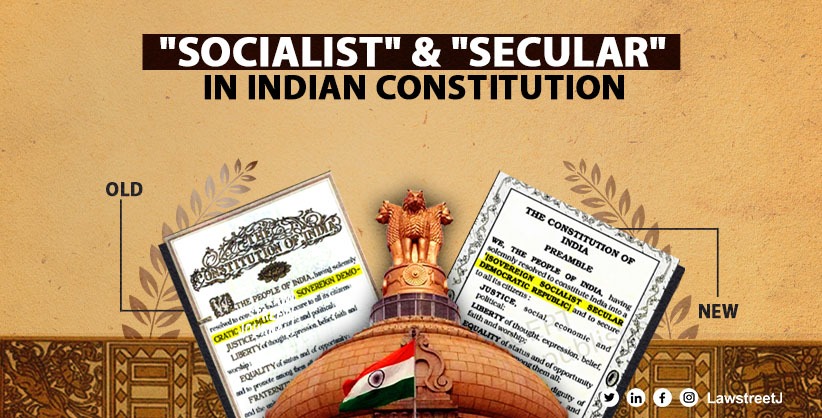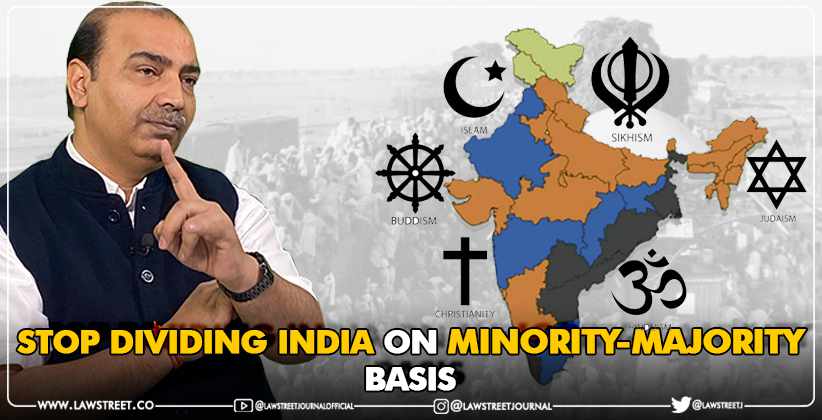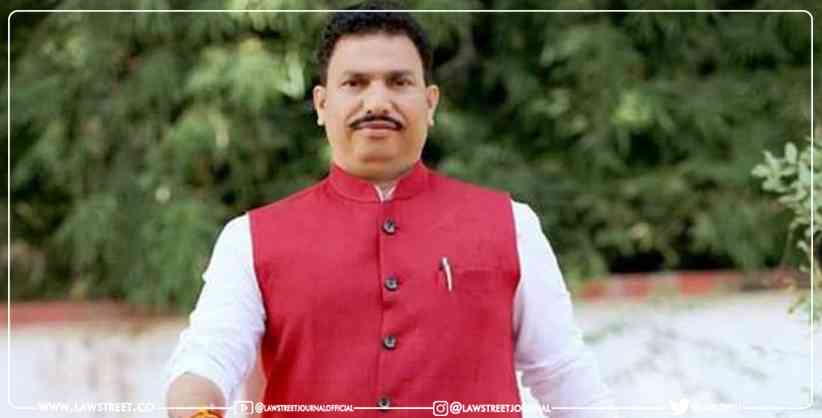Recently, some of the Members of the Lok Sabha have claimed that the words Socialist and Secular were omitted in the New Copies of the Preamble of the Constitution of India. This has erupted a fresh row over the two words and their presence in the Constitution of India. Lok Sabha leader of Opposition Adhir Ranjan Chowdhury claimed that new copies of India's Constitution omit the words socialist and secular.
The new copies of the Constitution that were given to us today (19th September), the one we held in our hands and entered (the new Parliament building), its Preamble doesn't have the words 'socialist secular'. We know that the words were added after an amendment in 1976 but if someone gives us the Constitution today and it doesn't have those words, it is a matter of concern", Chowdhury told news agency ANI.
However, The BJP government has justified its actions saying that the original copies of the Constitution, which didnt contain the two words, were given to the parliamentarians.
History and debates about socialist and secular in the Preamble
Now, to understand the rift we have to go back to the 1950. Surprisingly, the two words (Socialist and Secular) in question were originally not a part of the Preamble.
They were added by The Constitution (42nd Amendment) Act, 1976 during the Emergency imposed by then Prime Minister Indira Gandhi.
The description of India was then changed from sovereign democratic republic to sovereign socialist secular democratic republic. The term Socialist means the achievement of socialist ends through democratic means. It holds faith in a mixed economy where both private and public sectors co-exist side by side.
The word Secular has its roots in ancient Greece, which is defined as not connected with religious or spiritual matters. As per the Western model of secularism, the State or King and the religion or Church have their own separate spheres and neither the state nor the religion shall intervene in each others affairs. However, Indian secularism allows for principled state intervention in all religions.
Highlighting this concept critics have raised the establishment of the Waqf Board and Muslim personal law, calling it a constitutional bias and how it is dangerous for the country.
Some critics express concerns that the words "socialist" and "secular" might be misinterpreted or misused. The fun fact is that when the daughter was adamant about bringing Secular words in the preamble, the father was against it.
Ironically though, it was Nehru along with the chairman of the drafting committee of the constitution, BR Ambedkar, who were also most opposed to the idea of including the word secular in the preamble of the constitution.
In 2008, the Supreme Court rejected a plea demanding the removal of socialist. A three-judge Bench headed by then Chief Justice of India K G Balakrishnan said, Why do you take socialism in a narrow sense defined by Communists? In a broader sense, it means welfare measures for the citizens. It is a facet of democracy.
However, critics pointed out the foreign origins of the words, socialist and secular, the inapplicability of it in the Indian context, and the problematic ways in which it has been applied in India as well. According to historian Ronald Inden in his work, Imagining India, said, Independent government implemented secularism mostly by refusing to recognize the religious pasts of Indian nationalism, whether Hindu or Muslim and at the same time (inconsistently) by retaining Muslim personal law.
In a petition filed by former BJP MP Subramanian Swamy in the Supreme Court for the removal of the words. Similar petitions have been filed earlier too. Petitioners have argued about the inclusion of these terms in the Constitution, and how such inclusions surpassed the amending power of the Parliament under Article 368.
Earlier in 2015, the Ministry of Information and Broadcasting had used an image of the Preamble of the Indian Constitution without the words socialist and secular, which led to criticism.
In 2020, BJP MP Rakesh Sinha moved a resolution in Rajya Sabha seeking to remove the word socialism from the Preamble.
In an interview with Law Street Journal, Senior Advocate Prashant Bhushan also acknowledged that there is no denying that the words Socialist and Secular were written in the Preamble unconstitutionally in 1976 and the question over the validity of the words in the Preamble stands right. These words were added to the Indian Constitution through 42nd Amendment Act in the most undemocratic way after having jailed most opposition members under draconian acts, and suspension of fundamental rights in 1976.
Those advocating for the removal argue that the words "socialist" and "secular" were inserted during the Emergency in 1976, which never got the nod of Parliament. This raises the question regarding the validity of the inclusion of these words. So, what is our real preamble? The one that never got passed in Parliament? Or the one which was introduced in the Constituent Assembly, discussed, and adopted in 1950?








![Number of Constitution bench matters reduced drastically over decades, Lok Sabha informed [Read Statement]](/secure/uploads/2023/08/lj_1613_Constitution_bench_cases_sc.jpg)
![Only Central Govt empowered to undertake census, Centre tells Supreme Court [Read Affidavit]](/secure/uploads/2023/08/lj_7449_9c75a532-6157-429f-be90-4805dbb8a2ee.jpg)






